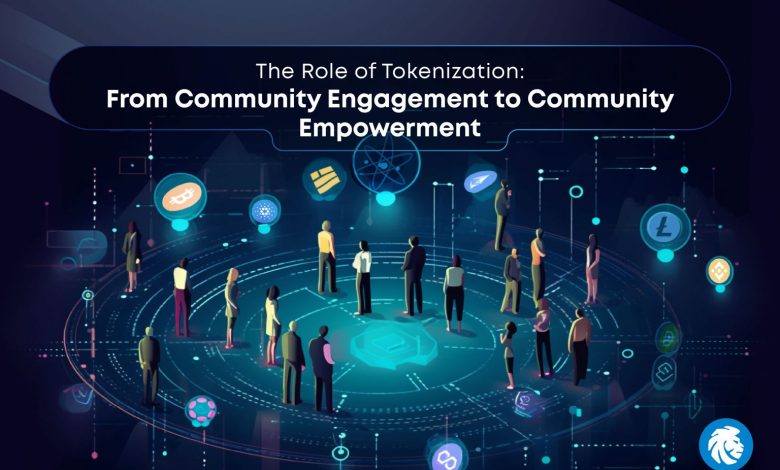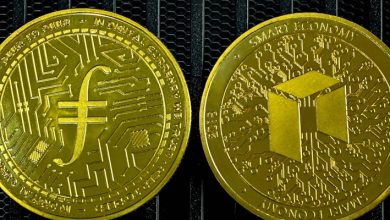The Role of Token Governance in Project Success

- Understanding the importance of token governance in project success
- Key components of effective token governance
- The impact of token governance on project sustainability
- Challenges and solutions in implementing token governance
- Best practices for token governance in project management
- Case studies showcasing successful token governance strategies
Understanding the importance of token governance in project success
Token governance plays a crucial role in the success of a project. It involves the management and oversight of the token ecosystem, ensuring that the token functions effectively within the project. By establishing clear rules and guidelines for token usage, governance helps maintain transparency and accountability.
Effective token governance can help prevent issues such as token manipulation, fraud, and misuse. It also ensures that the token is used in a way that aligns with the project’s goals and objectives. By establishing a framework for decision-making and enforcement, token governance helps maintain the integrity of the project.
Token governance also plays a key role in building trust and confidence among stakeholders. When participants in the project know that there are clear rules in place for token usage, they are more likely to engage with the project and contribute to its success. This trust is essential for the long-term viability of the project.
Overall, token governance is a critical component of project success. By establishing clear rules and guidelines for token usage, governance helps ensure that the token functions effectively within the project ecosystem. It also helps prevent issues such as fraud and misuse, building trust and confidence among stakeholders. In this way, token governance plays a vital role in the overall success of a project.
Key components of effective token governance
Effective token governance is crucial for the success of any project utilizing blockchain technology. There are several key components that contribute to the establishment of a robust token governance framework:
- Clear guidelines: Establishing clear guidelines for token holders is essential to ensure transparency and accountability within the project. These guidelines should outline the rights and responsibilities of token holders, as well as the process for decision-making and voting.
- Decentralized decision-making: Token governance should be decentralized to prevent any single entity from having too much control over the project. Decisions should be made collectively by the community of token holders through a transparent and democratic process.
- Regular audits: Regular audits of the token governance system are necessary to ensure compliance with regulations and best practices. Audits help identify any weaknesses or vulnerabilities in the governance framework that need to be addressed.
- Community engagement: Engaging with the community of token holders is essential for building trust and fostering a sense of ownership among stakeholders. Regular communication and feedback mechanisms should be in place to keep the community informed and involved in decision-making processes.
- Adaptability: Token governance frameworks should be adaptable to changing market conditions and regulatory requirements. Flexibility is key to ensuring the long-term success and sustainability of the project.
By incorporating these key components into their token governance framework, projects can enhance transparency, accountability, and community participation, ultimately leading to greater success and sustainability in the long run.
The impact of token governance on project sustainability
The impact of token governance on project sustainability is a crucial aspect that can determine the long-term success of a project. Token governance refers to the rules, processes, and mechanisms that govern how decisions are made within a project ecosystem. Effective token governance can help ensure that the project remains sustainable by promoting transparency, accountability, and fairness.
One of the key ways in which token governance can impact project sustainability is by ensuring that all stakeholders have a voice in decision-making processes. By allowing token holders to participate in governance decisions, projects can benefit from a diverse range of perspectives and ideas, leading to more robust and inclusive decision-making.
Additionally, token governance can help mitigate the risk of centralization within a project ecosystem. By distributing decision-making power among token holders, projects can reduce the risk of a single entity or group dominating governance processes, which can lead to conflicts of interest and undermine the project’s sustainability.
Furthermore, effective token governance can help build trust and credibility among stakeholders. When token holders have confidence in the project’s governance processes, they are more likely to remain engaged and supportive over the long term. This can help drive adoption, attract new participants, and ultimately contribute to the project’s overall success and sustainability.
Challenges and solutions in implementing token governance
Implementing token governance can present various challenges for projects, but there are solutions that can help overcome these obstacles. One common challenge is the lack of clarity around roles and responsibilities within the governance structure. This can lead to confusion and inefficiencies in decision-making processes. To address this, project teams can establish clear guidelines and protocols for governance participants, ensuring everyone understands their role and contribution to the project’s success.
Another challenge is the issue of token distribution and allocation. Without a fair and transparent distribution mechanism, token holders may feel disenfranchised, leading to dissatisfaction and potential conflicts. One solution to this challenge is to implement a token distribution model that is based on merit and contribution to the project, rather than arbitrary factors. This can help build trust and engagement among token holders, fostering a sense of community and collaboration.
Security and compliance are also significant challenges in token governance. Ensuring the security of token transactions and compliance with regulatory requirements is crucial for maintaining the project’s credibility and reputation. By implementing robust security measures, such as multi-signature wallets and smart contract audits, project teams can mitigate the risk of security breaches and regulatory violations.
Overall, implementing token governance requires careful planning and consideration of various factors. By addressing challenges such as role clarity, token distribution, security, and compliance, projects can establish a strong governance framework that supports their success and sustainability. Through effective governance practices, projects can enhance transparency, accountability, and trust among stakeholders, ultimately driving long-term value and growth.
Best practices for token governance in project management
When it comes to token governance in project management, there are several best practices that can help ensure the success of a project. By following these guidelines, project managers can effectively manage the use of tokens within their projects and maximize their potential benefits.
- Establish clear guidelines for token usage: It is important to define how tokens will be used within the project, including their purpose, distribution, and governance structure.
- Implement transparent decision-making processes: Project managers should ensure that decisions related to token governance are made openly and transparently, with input from all relevant stakeholders.
- Monitor token performance: Regularly tracking the performance of tokens within the project can help identify any issues or areas for improvement.
- Engage with the community: Building a strong community around the project can help ensure the success of token governance efforts and increase overall project engagement.
- Regularly review and update governance policies: As the project evolves, it is important to regularly review and update token governance policies to ensure they remain effective and relevant.
By following these best practices for token governance in project management, project managers can help ensure the success of their projects and maximize the benefits of tokenization. Effective token governance can help drive project success and create value for all stakeholders involved.
Case studies showcasing successful token governance strategies
Several case studies have demonstrated the importance of **token governance** in ensuring the success of a project. By implementing effective **governance strategies**, projects can mitigate risks, increase transparency, and build trust among stakeholders.
One notable example is the **Ethereum** project, which has a robust **governance** model that allows token holders to vote on proposed changes to the network. This system has helped **Ethereum** adapt to changing market conditions and maintain its position as one of the leading **blockchain** platforms.
Another case study is **Tezos**, which has a unique **governance** mechanism that allows token holders to vote on protocol upgrades. This approach has enabled **Tezos** to avoid contentious hard forks and ensure that the network remains secure and stable.
Additionally, **MakerDAO** has implemented a **governance** system that gives token holders a say in key decisions, such as adjusting interest rates and collateral requirements. This has helped **MakerDAO** maintain the stability of its **stablecoin** and attract more users to its platform.
Overall, these case studies highlight the importance of **token governance** in driving project success. By empowering token holders to participate in decision-making processes, projects can foster a sense of community and ensure that their networks remain resilient and adaptable in the face of challenges.




